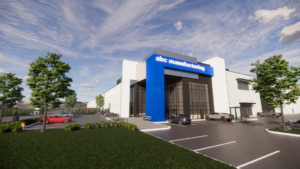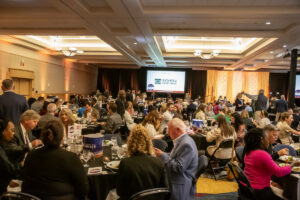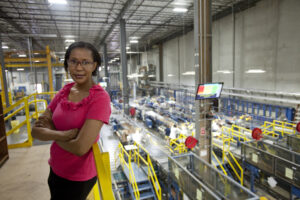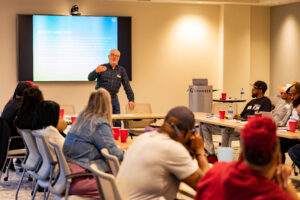Building for the future often means either borrowing money or raising revenue. One of the unique financial tools cities and counties can use to pay for needed infrastructure is called a “TIF,’ which stands for Tax Increment Financing. A TIF allows projects to be funded by future tax revenue the city or county would not be able to fund through existing budgets or tax revenue.
This week the City’s Industrial Development Board will consider a TIF plan to support redevelopment of 88 acres of the former Dupont industrial site into the North River Commerce Park.
Tax Increment Financing (TIF) is a financial tool utilized by local governments to fund public infrastructure and facilities. It is often utilized to encourage redevelopment of blighted areas by encouraging private sector investment as well as job creation.
How does this work? Local governments first establish boundaries to determine the TIF district. Existing taxes generated in that district are frozen and continue to be paid to the City and County’s general funds.
When private sector businesses develop inside the TIF district a portion of the new property tax revenue and sometimes sales tax revenue generated by that development goes into a TIF account instead of going to a city or county’s general fund account. This is often revenue that would not happen at all without the city and county investment in infrastructure.
TIF funds can then be used to pay for public infrastructure and facilities (including buildings), parking, site prep and sometimes environmental remediation. They generally cannot be used to pay for salaries or services
Why would local government use TIF?
- TIFs allow cities and counties to fund infrastructure through future tax revenue – infrastructure or improvements the city or county would not be able to fund through existing tax revenue or budget
- TIFs typically incorporate property taxes from more than one local government (such as a city and a county). Joint TIFs allow local governments to partner and fund larger projects than they could do on their own
- TIFs allow cities to attract private sector investment to blighted properties
- TIFs generate new tax revenue for local government – because not all taxes are captured by the TIF
- School taxes and taxes associated with debt service continue to go toward local government budgets and TIF projects spur additional development nearby – close to the TIF district but not in it – that provide even more tax revenue
- TIF projects create temporary (construction) and permanent jobs and the salaries from those jobs are spent annually in the community, multiplying the economic impact of the project beyond property tax revenue
TIFs used across the country support redevelopment, attract jobs and fund large public infrastructure projects. If you have traveled to other communities, you have probably visited TIF districts.
Shopped at IKEA in Atlanta’s Atlantic Station? Visited the Omni Hotel and Country Music Hall of Fame in Nashville? Ridden MetroRail in Houston or the Red Line in Chicago? These projects were funded all or in part through TIFs.
The North River Commerce Park on the former Dupont site will be Chattanooga’s fourth TIF. It will fund millions of dollars in new infrastructure without raising taxes while generating millions more that will go to Hamilton County Schools.
TIFs are a valuable tool when used wisely. They can help communities redevelop blighted property, create jobs and increase revenue for schools in our community. TIFs can also be a tool that can help fund transportation, housing and education projects – three of the most pressing issues facing Chattanooga and Hamilton County.
Author Bio:
Charles Wood is vice president of economic and talent development at the Chattanooga Area Chamber of Commerce.

Originally published through the Times Free Press, here.









